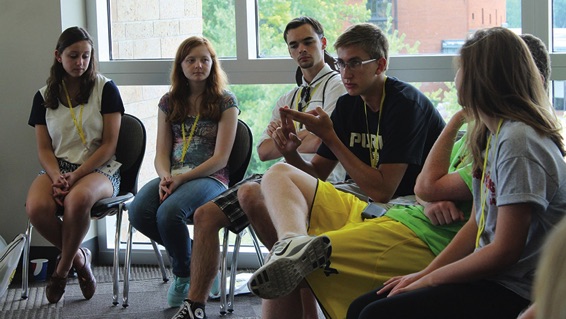A Program To Help You Deal Effectively with Teen Problems
Drug and Alcohol Use
Sexuality Issues
Parental Disrespect
Teen Pregnancy
School Pressures
Adult Disrespect
Teenage Crime
Disregard for Authority
The Power of Group Process
Creating a Positive Culture Out Of Nothing
The Process
When we as the adults give even the most disruptive of teens the opportunity to participate in building a positive group culture from scratch it often becomes a transformative experience. Teens discover qualities within themselves they never knew they had.
They develop compassion and caring.
They share group leadership.
They absorb advice and constructive criticism from others.
They gradually create a culture of group trust.
Why?
Because the dialogue is all peer-driven, not adult--driven.
And this is what enables knowledgeable adults to penetrate the teen peer culture itself.
How It Works
How is this done?
Begin the group with 10-12 of the most difficult students. They are teenagers, go to the same school, and are all disruptive students under school discipline. They may or may not know each other. These are the commonalities.
Q " What are you all doing here?
Say nothing further until there is a response (teens cannot handle silence especially in a group situation).


Do not respond until the students ultimately provide a coherent answer
"We all got in trouble in school, etc"
"So you were all sent here because you all messed up?"
"Yes"
"So what do you all want to do about it"?
Force the responses/answers to come from them, not you as the Leader/Educator.
The teens all know that if they're there in a group situation for getting into trouble they're there to talk about it. They gradually learn through the group interaction that the Leader will give no answers, no directions and that it all must come from themselves.
"Do you want us to talk about why we got in trouble?"
"What do you think"?
The teens will now--perhaps slowly-- begin to talk about the circumstances that gave rise to their troubles at school. And, being teenagers, they usually begin by blaming others. The Leader now begins to separate the sheep from the goats.
"So it's all someone else, not you, huh? You are a helpless victim of what other people do?
"Other people run your life, not you, right?"
"Life is just too tough for you to handle, huh?
Very few teenagers will agree with that last question.
This is the point where positive teen leaders begin to emerge by challenging others still looking for excuses for their behavioral mistakes.
A positive culture now begins within the group.
Ultimately, prodded by their peers, virtually all group members will be able to take full responsibility for themselves and their behavior.
The final group development stage--not reached by every group --is when--rather then denial--there is a discussion of what each teen has to address in his daily life and how on earth will he/she be able to do it successfully?
Got Teenagers
December 27, 2017

